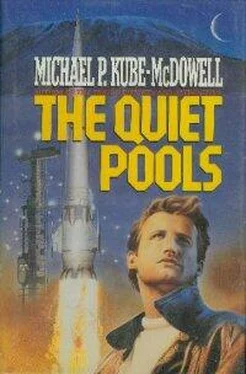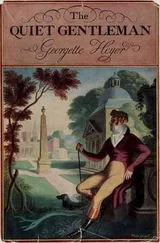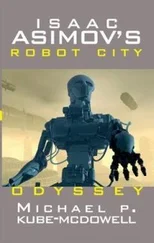But the solitary chinook in the ladder seemed stuck midway down the last leg of its maze, its bright white marker edging forward and then easing back.
“Come on, come on,” Christopher said aloud.
“This is the slow season,” a voice said behind him.
It was the ranger, come to check on his curious visitor. Christopher turned at the rail to see him standing beside the exhibits in the middle of the room. “What?”
“Chinook and steelhead pretty much quit running by the end of November, and the king won’t start up again till March, at least. That’s worth seeing. Still fill up the windows at the peak of the run, day and night, like the river’s half quicksilver. Those-uns are stragglers—not likely to get where they’re going, or to make anything of it if they do.”
Christopher settled his buttocks against the railing, hands grasping the wood to either side. “Sounds like I’d be better off talking to you instead of waiting for the show to begin,” he said. “How long have you worked here?”
“Twenty-two years next May.”
“That long? Then you were probably here the last time I was,” Christopher said. “In ’81.”
Nodding, the ranger said, “Probably was. Hope you picked a better day back then.”
“I was with my father,” Christopher said. “He just died a few days ago.” He could not understand why he blurted that out to this stranger. But when it was said, there was a sudden tightness in his throat that made it hard to swallow.
Sage and sympathetic eyes answered him. “That’s hard. I guess you’d like me to leave you be.”
“No,” Christopher said quickly, suddenly afraid to be alone. “You must know a lot about salmon, working here that long.”
“I know my piece. Used to work the counting room over there, before they brought in the AIP. Fifty minutes on, ten minutes off, eight hours a day with an eye on the window and a hand on the tally bar. I can tell one fish from the next, I guess.”
“That sounds incredibly dull.”
The ranger stepped forward, tucking his hands in his back pockets. “People thought so, but it never seemed so to me. I put in six years as a counter. It was kind of like being plugged into the river, to the whole cycle of things. No two days alike.”
An impolitic chuckle escaped Christopher. “Really?”
“Laugh, but it’s true. And when I was done, I was done. Never took my work home to my lady,” he said with a self-amused smile. “Never any complaints about the guys at the office.” The ranger looked past Christopher and nodded toward the window. “There. Looks like she might make it this time.”
Christopher turned back just as the thick-bodied shape of a chinook salmon, tail fins thrashing the water, hove into view at the right edge of the window. The upper third of the body was freckled with black spots. Below them, behind the pectoral fin, a triangular tear the size of Christopher’s palm flapped in the current, baring red flesh beneath.
There were rips and notches in the tail fins and first dorsal as well, and the silver skin seemed pale and flaccid. The chinook hovered for a few seconds before the window, then was swept backward into the maze. The tracking lights marked its retreat, and in less than a minute it flashed past the next downstream window, its body at an odd angle, making only the most feeble effort against the current.
“Not much longer for that one,” the ranger said, clucking. “Probably failed at The Dalles, upstream, and been kicking around Bonneville Lake with the spring running down. They won’t feed in fresh water, you know, no matter how weak they get. Odd thing is they’ll take a fisherman’s fly, even though they’re fasting, but that’s as far as it goes—say, are you all right?”
Christopher barely heard the question and could say nothing in answer. While the ranger rattled on and the salmon tumbled past, the tightness in Christopher’s throat had returned, quickly growing into a strangling ache beneath his ribs. His throat was raw, and each breath hurt more than the last. He took his air in little gasps that were chopped off with sounds like sobs.
Clutching the railing and struggling for air, Christopher blinked away tears in a feeble effort to staunch them, until his cheeks were shining wet and the anguished sobs unmistakable. He sleeved the moisture away, infuriated that he did not know what had triggered his crying, and even more that he could not stop it.
But fury, like embarrassment, was a feeble weapon against the flood of pain, and his defenses crumbled. Racking, body-wrenching sobs seized him, and aching primal sounds tore free from prisons deep inside him. He slipped down to a seat on the stepped floor, clinging to the railing like an anchor with one arm, tear-blurred eyes hooded behind the wall of his hand—one final, feeble grasp for dignity in the midst of the kind of naked moment that shatters dignity and pretense and self-deception.
And when Christopher sensed the ranger beside him, felt the uncertain touch on his shoulder, and heard the kind-voiced question “You want to tell me about it?” all he could think to say was I hurt , and that seemed too mean and petty a thing to share.
It was hard to escape the ranger’s unwelcome solicitude, and harder still to persuade him that he did not want to be left alone. The arrival of other visitors, a family with two children in tow and an infant in arms, was the first wedge, destroying the illusion of privacy and reminding the ranger of his other duties.
“Look, you want to come upstairs, I can let you sit in the staff workroom awhile,” said the ranger. “Seems like you need to take a little time to pull together.”
“I’m okay,” Christopher lied, his voice unpersuasively hoarse and thready. “I just got clobbered by an old memory, that’s all. My father used to take me fishing up by The Dalles.”
The ranger frowned, teetering between resistance and acceptance. “We’ve got a counselor over at the administration center,” he said. “Maybe I should give him a call.”
“No,” Christopher said, pulling himself to his feet. “I’m all right. Just go back to the desk and be your smiling self.” He turned and looked up, feigning interest in the fish tracker.
Rudeness did what diplomacy could not. The ranger hesitated, then finally walked off. When he disappeared into the elevator, Christopher hurried to the stairs.
From the plazalike observation deck atop the center, Christopher could look down four stories into the fish ladder, as well as downstream toward the Beacon Rock monolith and across the island to the dry, quiet spillways of the dam. By the time he had made a slow walking circuit of the deck, he also had a clearer view of what had spilled from him downstairs.
His father’s death had been remote and somehow sanitary, easily denied, curiously unaffecting. Moreover, there had been no one but Lila to talk to, no one to help him catalyze his emotions. Consequently, he had managed to pretend that he was whole, ignoring the growing sac of emotional pus. The sight of the blooded, failing chinook had slashed it open, the two-edged blade of futility and finality doing the damage.
But other questions, more important questions, remained unanswered. His father’s ruminations on the blind, all-sacrificing drive of the pioneers were unsettling. It was clear to Christopher that his father had meant it as more than metaphor—Jeremiah’s actions were proof of that. He had seen something out there to fight against, something tangible and threatening.
Which made no sense to Christopher. There were some poetic parallels, to be sure, but there were also fatal—even foolish—incongruities. There were no dissenting chinooks barricading the mouth of Columbia, no coho plotting to destroy the fish ladders. The salmon’s migration was an expression of their being, an uncontested conation pointed toward survival, the sole moral barometer of evolution.
Читать дальше

![Nick Cracknell - The Quiet Apocalypse [= Island Zero]](/books/28041/nick-cracknell-the-quiet-apocalypse-island-zero-thumb.webp)










